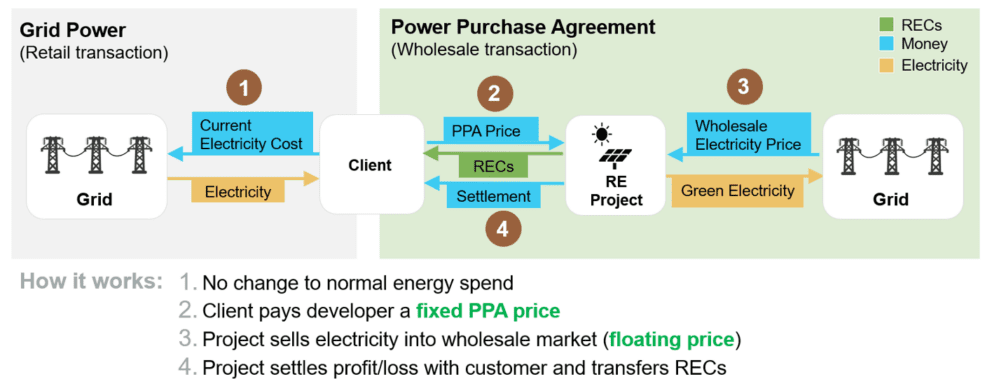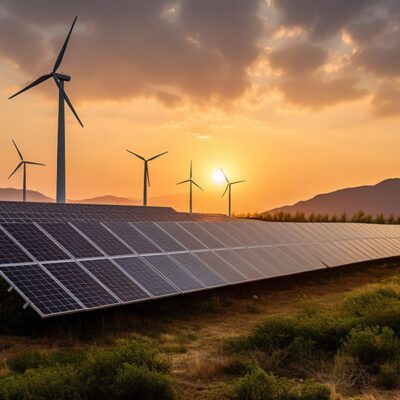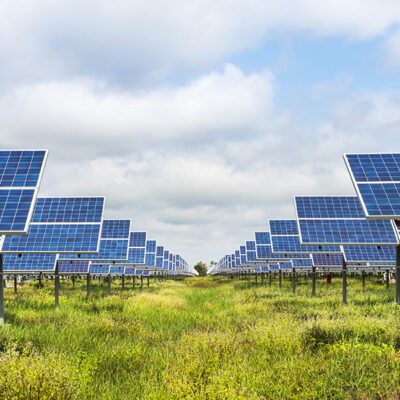Different retail electricity markets offer different solutions for your sustainability strategy.
As your organization makes decisions about its energy procurement, it’s important to understand how different electricity markets work — and how those markets track with your overall sustainability strategy.
Depending on where your company’s operations are located, they lie in either a regulated retail electricity market, a deregulated (competitive) retail electricity market — or possibly both if your operations span multiple electricity grids or cross state borders. Many states don’t fall neatly into one or the other category and so use aspects of both types of markets to serve their residents. This means your renewable energy choices will likely vary as you begin exploring options. Here’s a rundown of the most common type of retail electricity markets and what they might offer.
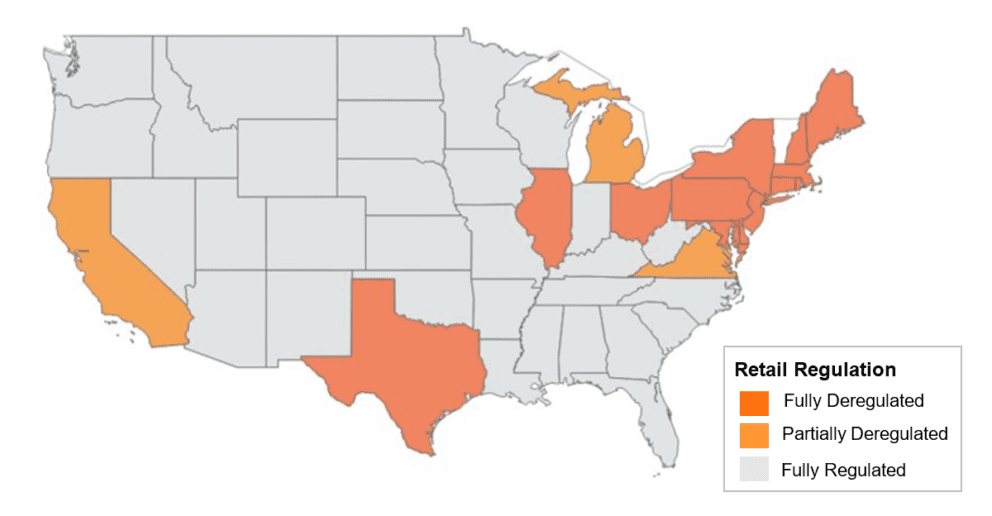
Visit the American Coalition of Competitive Energy Suppliers for state-by-state information on the competitiveness of electricity and gas markets.
Regulated Electricity Markets
In a regulated retail market, like the ones that currently dominate much of the Southeast and West, a vertically integrated monopoly utility handles all power sales with oversight from a public regulator. Customers in these markets must purchase their power from that utility.
If an energy buyer operates in a regulated market, it can be challenging or impossible to buy electricity from a local large-scale renewable asset, such as a wind farm, and claim climate benefits inside your market. However, some utilities offer green tariff programs which allow that utility to tap into the renewables market and offer renewable energy certificates, or RECs, to energy buyers. The quality and reliability of your existing power supply won’t change but where your utility gets that power from will, and you can verifiably claim the economic and environmental benefits of purchased renewables while helping to green the larger U.S. grid.
In a regulated market, organizations with very large electricity loads may also participate in a financial VPPA (virtual power purchase agreement) in addition to the existing purchase of electricity from the utility. A VPPA signed with a development-stage renewable energy project may allow a buyer to help the developer source funding for construction. Once the project reaches operations, the energy buyer benefits from the fixed-price purchase of a large amount of electricity in the VPPA, which helps stabilize the buyer’s total energy spend.* In addition, the buyer also receives RECs from the VPPA project to substantiate renewable energy purchasing claims.
Deregulated Electricity Markets
In a deregulated or competitive retail market, retail electricity suppliers can purchase wholesale electricity from generators and sell it retail to end-users. In this case, the utility’s role is to ensure all power is reliably distributed and all infrastructure is working properly. As of 2023, 17 states have deregulated the sale of at least some energy and introduced this retail choice model (see map), so customers may choose from several electricity providers, benefit from more competitive rates, and access a broader landscape of products that include renewable energy.
A competitive retail market offers many of the same options as a regulated market plus you can directly procure renewable energy through a physical power purchase agreement (PPA), as long as that asset has access to a competitive wholesale market managed by an independent system operator (ISO) or regional transmission organization (RTO). These are the major wholesale electricity markets in the United States and Canada:
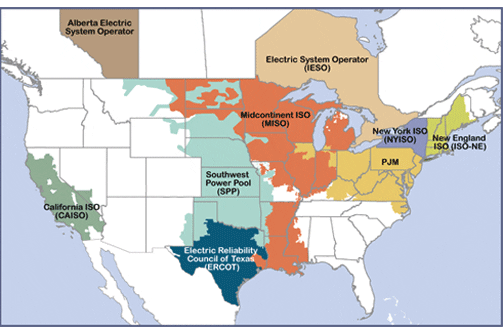
In general, there are more options in a deregulated market. For example, customers may be able to incorporate renewables directly into their retail supply contract, choose the source of the renewable energy, and enjoy more flexible contract structures.
Another State Policy to Watch: Community Solar
Community solar is another, increasingly common way to access renewable energy. The U.S. Department of Energy defines community solar as a project or purchasing program which extends the benefits of local solar to multiple customers such as individuals, businesses, nonprofits, and other groups. Community solar allows community members of all types to access the benefits of renewable energy, like lower energy costs, equitable access, and shared ownership. State policies that enable community solar programs are distinct from those that determine whether a retail market is regulated or deregulated. That means community solar is available in some states where renewables options are otherwise limited by a regulated retail market. Buyers interested in making renewable energy purchasing claims should be careful to understand whether they will receive RECs by participating in a community solar program.
Renewables Are Valuable Anywhere
Fortunately, the value proposition associated with large-scale renewable energy – the potential for lower costs*, reduced future price risk, greenhouse gas emissions reductions, and other strategic benefits – is available to all customers, regardless of regulatory regime. But regional markets and their structure will affect your options and influence the best approach to a more sustainable energy arrangement.
*Trading in commodity interests and financially settled energy contracts, such as virtual power purchase agreements, can be complex and involves risk of loss that can be substantial. You should consult with your own legal and accounting advisors before entering into any such contract or transaction.

